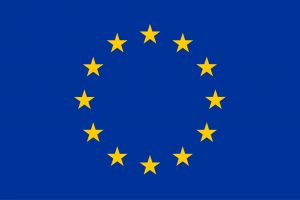Kaunas University of Technology (KTU), Lithuania researchers are taking part in an ambitious project SPARTA Cybersecurity Competence Network, which will deliver advanced cybersecurity solutions in all aspects of private and societal life.
Around 17,339 cyber-attacks are happening every day; global spending on cybersecurity products and services reached 120 billion dollars in 2017. Although it is hard to estimate total losses from cybercrime for the public and private sector worldwide, it is believed to be 1-3% of the global GDP. This is why the economy relies heavily on a secure ICT structure with the cybersecurity at the forefront of the 4th industrial revolution.
Cybersecurity is an urgent and major societal challenge. With the digitalization of our societies, cyber threats have an increasing impact on our lives.
It is therefore essential to ensure digital security and strategic autonomy of the EU by strengthening leading cybersecurity capacities. This challenge will require the coordination of Europe’s best competences, towards common research and innovation goals.
“In contemporary society information and communication technologies have become an inseparable part of our life in all its aspects – from domestic life, work, leisure activities to governments and state security issues. All these aspects are included in so-called cyberspace, which doesn’t have state borders. This has created new challenges for society, new cyber-security problems”, says Professor Algimantas Venčkauskas, who is leading the group of KTU researchers at SPARTA project.
SPARTA is a novel Cybersecurity Competence Network, supported by the EU’s H2020 program, with the objective to develop and implement top-tier research and innovation collaborative actions. Strongly guided by concrete challenges forming an ambitious Cybersecurity Research & Innovation Roadmap, SPARTA will set up unique collaboration means, leading the way in building transformative capabilities and forming a world-leading Cybersecurity Competence Network across the EU. From basic human needs (health) to economic activities (energy, finance, and transport) to technologies (ICT and industry) to sovereignty (eGovernment, public administration), four research and innovation programs will push the boundaries to deliver advanced solutions to cover emerging challenges.
The SPARTA consortium, led by CEA, assembles a balanced set of 44 actors from 14 EU Member States at the intersection of scientific excellence, technological innovation, and societal sciences in cybersecurity. Together, along with SPARTA Associates, they aim at re-imagining the way cybersecurity research, innovation, and training are performed in Europe across domains and expertise, from foundations to applications, in academia and industry.
In sharing experiences and excellence, challenges and capabilities, SPARTA makes decisive contributions to European strategic autonomy.
KTU team led by Professor Algimantas Venčkauskas of the Computer science department, will carry out research 1) to develop and validate methodological, organizational and technological solutions extending cybersecurity towards comprehensive organization of security functions, that would focus more on threat prediction and full-spectrum cybersecurity awareness, providing high situational awareness, informing decision and policymakers on broad or long-term issues and/or providing a timely warning of threats, 2) to develop a secure-by-design development framework and a toolkit supporting the design, development and verification of security-critical, large-scale distributed intelligent infrastructure systems, 3) to design a comprehensive cybersecurity skills framework intended to update and boost university programs in cybersecurity and professional training and to raise the public awareness of both citizens and professionals about the cyber threats.
More information about the SPARTA project is available on www.sparta.eu, https://twitter.com/sparta_eu, https://www.linkedin.com/company/sparta-eu and https://www.instagram.com/sparta_eu/.

